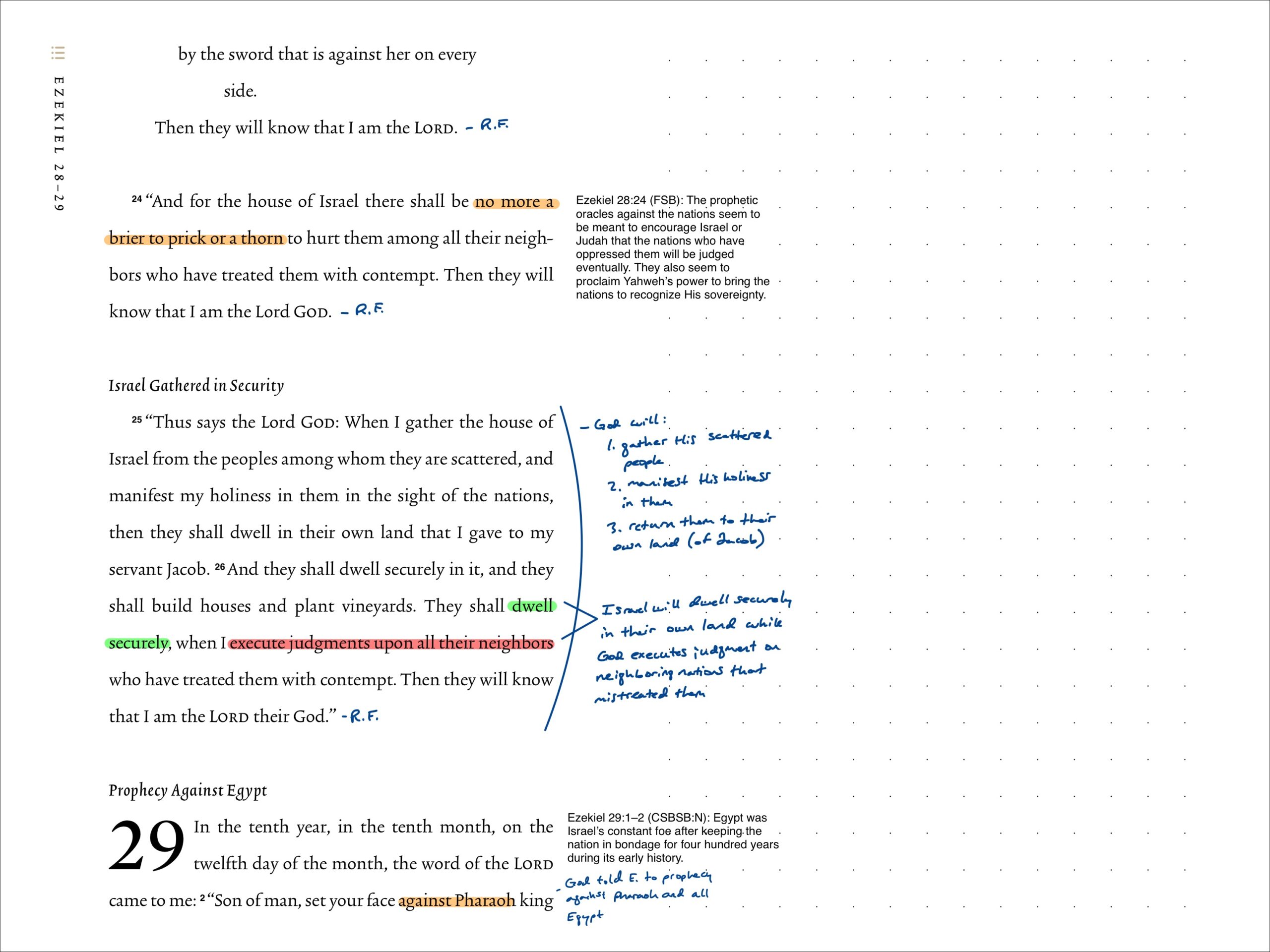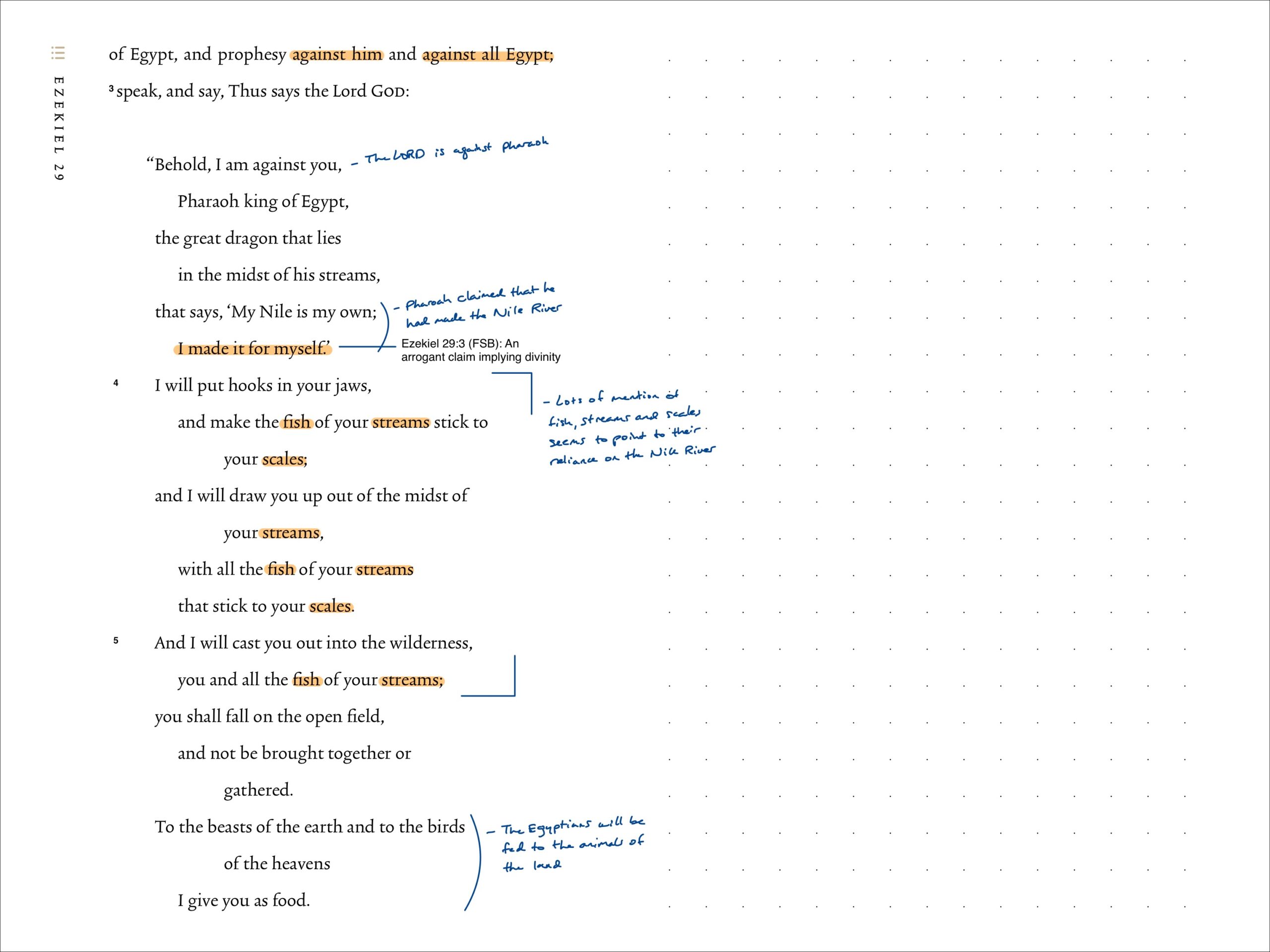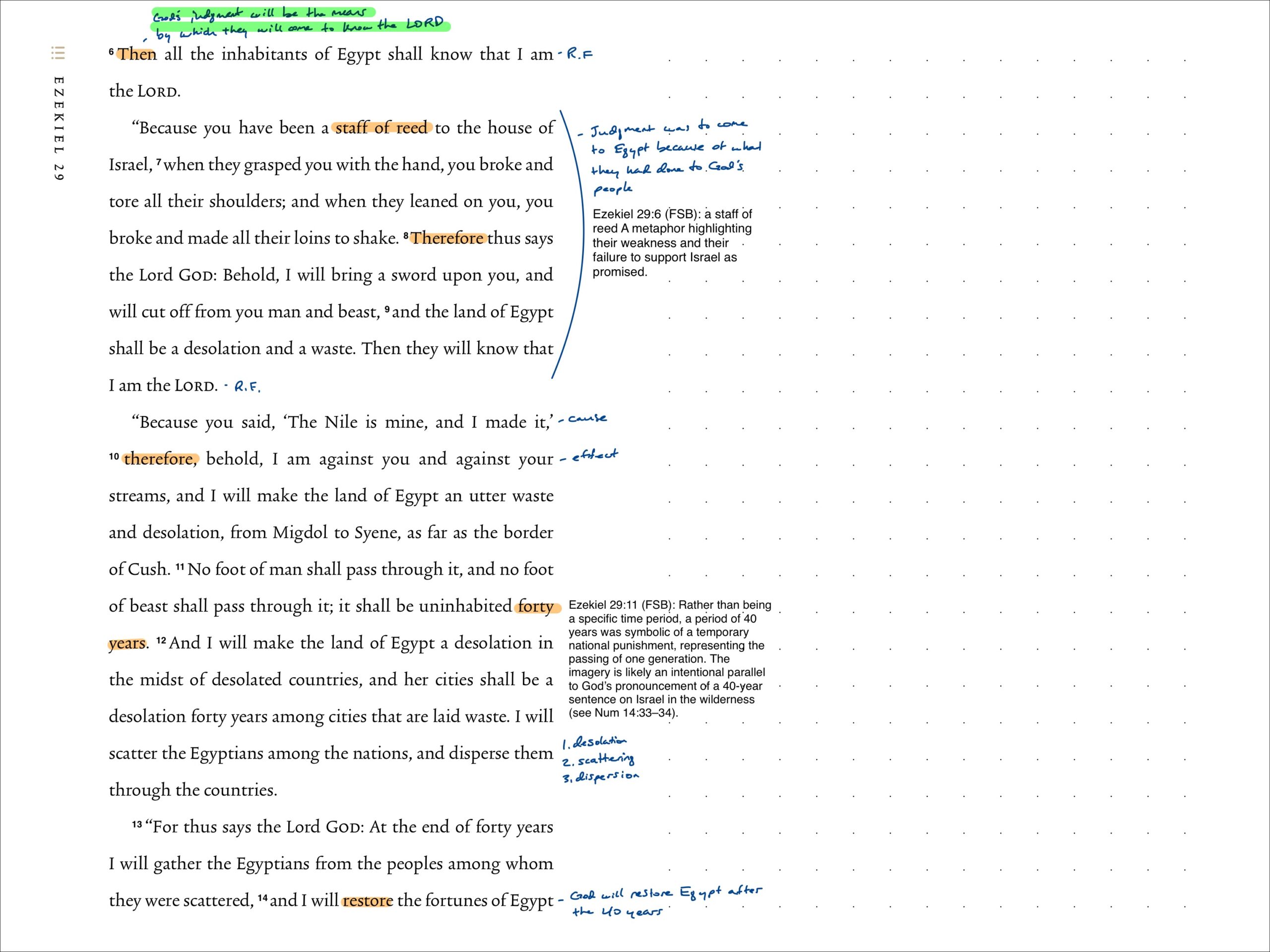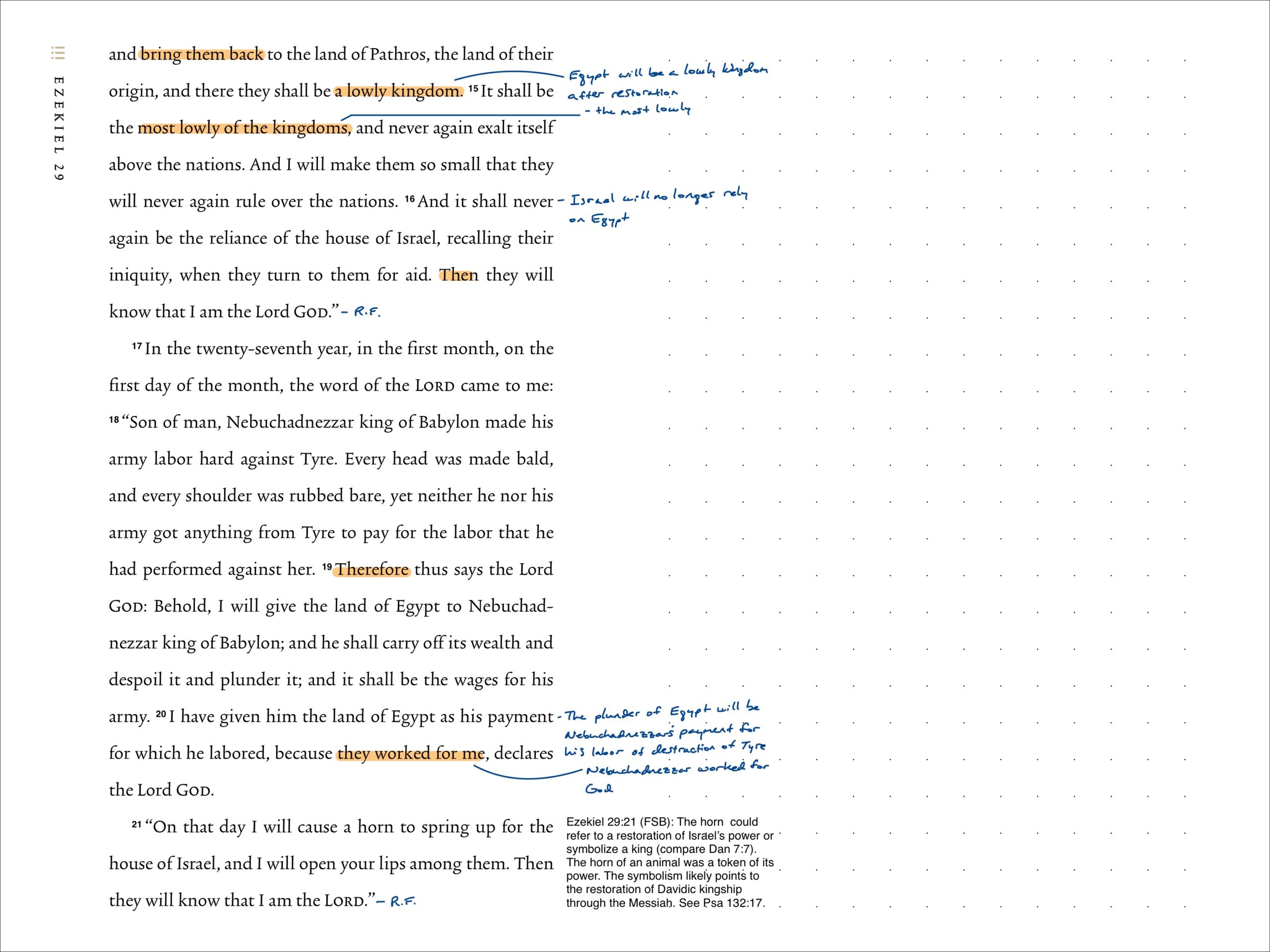| Date | Version | Reading Plan |
|---|---|---|
| @September 19, 2023 | ESV (2016) | ESV Prophets Plan 2023 |
Pericopes
- Prophecy Against Egypt
Notes
The chapter opens with a word that came to Ezekiel from the LORD to prophesy against Pharaoh of Egypt and Egypt itself. Egypt was Israel’s constant foe after keeping the nation in bondage for four hundred years during its early history.
In Ezek. 29:3-6a, God addresses Egypt that He is against Pharaoh who had arrogantly claimed divinity by saying that he made the Nile River. God’s rebukes this claim with judgment upon Pharaoh. The details of judgment mention fish, streams and scales several times (ex. “I will put hooks in your jaws, and make the fish of your streams stick to your scales” – Ezek. 29:4). This seems to be making a connection between God’s judgment and the Nile River. And through this judgment, all the inhabitants of Egypt will come to know that God is LORD (Ezek. 29:6a)
In Ezek. 20:6b-9a, God declares the cause of His judgment on Egypt in that they had been a “staff of reed to the house of Israel” (Ezek. 29:7). This was a metaphor highlighting their weakness and failure to support Israel as promised. As a result, God will bring a sword upon them, cut off from them man and beast and make the land a desolation (Ezek. 29:9a). God then again gives His ultimate reasoning which is that, through the judgement, they would know that He is the LORD (Ezek. 29:9a).
In Ezek. 29:9a-12, God describes how it was because Pharaoh claimed that he had made the Nile that He would be against him and “make the land of Egypt an utter waste and desolation” (Ezek. 29:10). No foot or beast would pass through it and “it shall be inhabited for forty years” (Ezek. 29:11). This was a symbolic time frame of a temporary national punishment, representing the passing of one generation. The imagery is likely an intentional parallel to God’s pronouncement of a 40-year sentence on Israel in the wilderness (see Num. 14:33-34).
In Ezek. 29:13-16, God says that at the end of the 40 years, He will restore Egypt and “bring them back to the land of Pathros” (Ezek. 29:14). After their restoration, they will be the lowliest among the kingdoms (Ezek. 29:15) and Israel will no longer rely on them for aid (Ezek. 29:16). This will cause them to realize that God is LORD (Ezek. 29:16).
In Ezek. 29:17-20, a word came to Ezekiel that Nebuchadnezzar’s army had labored hard against Tyre but did not get anything for their efforts. Thus, God would give Egypt over to the the king of Babylon to be spoil for his labor against Tyre (Ezek. 29:19). God said that it was because Babylon “worked for me” that He gave Egypt to Babylon as payment for the king’s labors (Ezek. 29:20).
The final verse (Ezek. 29:21) is God’s declaration that He will “cause a horn to spring up for the house of Israel”. The “horn” could refer to a restoration of Israel’s power or symbolize a king (compare Dan. 7:7). The symbolism likely points to the restoration of Davidic kingship through the Messiah (see Ps. 132:17).
Application
God’s attention was now on Egypt and His judgment placed upon them would be for their pride and oppression against Israel. Egypt had succumbed to the same prosperity-driven arrogance as other nations, even leading to Pharaoh’s claim that he was the maker of the Nile River. Because of this, God would lay waste to an entire generation of Egypt, after which they would be the “most lowly of kingdoms” (Ezek. 29:15) and would come to know that He is LORD. It was this latter portion, their acknowledgment of God’s Lordship, that seemed to rise to prominence today.
Several times in the chapter, God, in one way or another says, “Then…they will know that I am the LORD”. The “then” seemed particularly striking as it draws a direct link between God’s judgment and the people’s recognition of His Lordship. God used this judgment as a bridge to bring people into right standing before Him and He employs much of the same toward us today as an outpouring of His superabundant love and grace; without which we would be left to careen down our own self-destructive paths. What unending praise we should have for our God who intervenes and cares for us in this way!
Scripture Journal Notes
Commentaries & Resources Used
- ESV Study Bible. (Wheaton, IL: Crossway, 2008)
- Faithlife Study Bible (Lexham Press, 2016)
- Believer’s Bible Commentary (Thomas Nelson, 2016)
- CSB Study Bible Notes (Holman Bible Publishers, 2017)
- Matthew Henry’s Commentary on the Whole Bible (Guardian Press, 1976)
- The Bible: A Reader’s Guide (Sterling Publishing, 2011)
- The Infographic Bible (Zondervan, 2018)
- ESV Digital Scripture Journal (Crossway, 2019)



